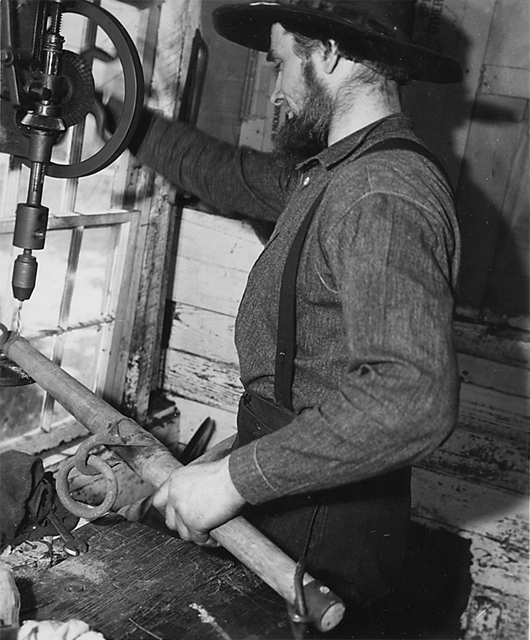Young Amish people are increasingly being drawn into the use of smartphones and computers, yet they are still trying to maintain their traditional horse-drawn culture. An article credited to the New York Times but published on the CNBC website on September 15th explored the efforts of many of the traditional Amish to retain barriers with the surrounding “English” people yet take advantage of the benefits that the internet provides, especially for their businesses.
Part of the problem is that the Amish have large families so there is not much land available for the young people to buy farms and continue the farming tradition of their society. Many of the young Amish raised on farms in Lancaster county and surrounding areas of southeastern Pennsylvania, for instance, have to move away to less populated places. Others take jobs or open businesses in the towns and cities of the region. So they perceive a need to have access to the internet.

Moses Smucker operates a sandwich shop and food stand at the Reading Terminal Market in Philadelphia, commuting by hired vehicle six days of the week from his home in Lancaster County. He sees some of the Amish using their phones but he is always glad to return to the horse culture of his own home every evening. He finds Philadelphia to be very fast paced so he relaxes by driving his horse—it slows down his life.
But the owner of Smucker’s Quality Meats and Grill at the Market, which caters to office workers and tourists in Center City, expressed tolerance for the use of advanced technology such as cell phones. “You have to do what you have to do to stay in business,” he said. His fellow Amish “are starting to understand that.” His business even has a basic website.

The reporter spoke with Donald Kraybill, now retired from the faculty at Elizabethtown College in Lancaster County but still a recognized authority on Amish society. He said that it is not unusual for Amish people to be cynical about the reverence that the “English” place on their phones. In his opinion, the Amish “are more savvy about the impact of technology on human interactions than most of us are.”
The journalist interviewed numerous Amish people in their homes and businesses about the place of the technological devices in their lives. Many saw their value, but they also accepted the wisdom of placing limits on their uses, particularly in their homes. One man, John, said in the midst of a traditional family dinner in his house that they are not allowed to have computers or phones in their homes but they have to have these devices in order to be successful in their businesses. It is hard keeping the 19th century horse culture alive in their communities when smartphones invade. Lizzie, his wife, inveighed against the phones. “People are treating those phones like they are gods,” she said. She added that people are “bowing down” to them at the table and while they are walking. The Amish don’t worship idols like that, she emphasized.

But the use of modern technology is not limited to the younger Amish crowd. John, the 68-year old host at the family dinner and the owner of a woodworking business, operates a computer-guided saw in his cabinet shop. He provides a striking contrast with the traditional Amish craftsman who used to work with a variety of hand-powered tools. John’s son, Junior, teased his father as they sat down to the family dinner, “we call him the computer geek sometimes.”
The Amish men and women the reporter interviewed in Lancaster County all valued their separation from the larger culture, which helps keep them together and preserve their peaceful values. They realize that the internet and the temptations it offers to unwary users might seriously affect their young people, leading them to reject their traditions.
Levi, another woodworker, argued that you’re not thinking if all you have to do is look stuff up on the internet. Others worry that using computers and the social media will lead young people to form close friendships outside their society. But they are recognizing the value of computers, smartphones, and the internet. Many of them are adjusting and using the new tools in their own ways.